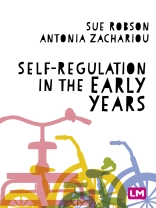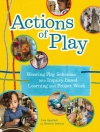This book supports students of Early Childhood Studies, Early Years and related disciplines to understand self-regulation in the early years. It explores what self-regulation is and includes evidence from cognitive, developmental and behavioural psychology and neuroscience. It asks why self-regulation is so central for children and why it is so important for practitioners to support and develop it in young children.
The book explores how self-regulation underpins much of children’s development, including social, emotional and cognitive development. Key contexts for self-regulation, in particular aspects such as play and talk, are covered. This book supports students to:
— know why self-regulation matters
- understand why self-regulation is increasingly evident in policy and curricular around the world
— focus on social, emotional and behavioural aspects of self-regulation
— explore the importance of relationships in self-regulation – between children and adults and between children themselves
— effectively observe and document self-regularion
Содержание
What is self-regulation, and why does it matter?
How does self-regulation develop in early childhood?
Where can we find self-regulation in policy and curriculum frameworks?
Relationships and self-regulation
Observing and assessing self-regulation in young children
Communication and language for self-regulation
Contexts for self-regulation
Planning – and not planning – for self-regulation
Об авторе
Antonia Zachariou is Assistant Professor at the Neapolis University, Part-time lecturer at New York University, London and Honorary Research Fellow at the University of Roehampton. Antonia researches in the area of self-regulation, focusing on young children’s self-regulation and on teachers’ role in promoting self-regulation. Her research has also focused on the link between play and the development of children’s self-regulation and metacognition. Her more general research interests lie in the area of studying young children′s learning and emotional, social and cognitive development.












